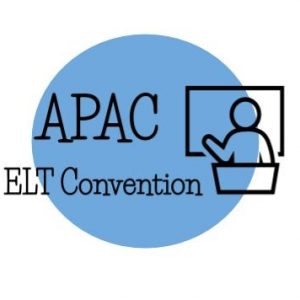Pronunciation in Action: Reflections from the Classroom. Nicola Meldrum
Nicola Meldrum (Oxford TEFL)
Pronunciation in Action: Reflections from the Classroom
Nicola had recently presented another version of this talk at the EIM Jornades Multilingües on 17th January this year, together with her frequent collaborator, Mark McKinnon. Mark was not there in person for this presentation, but his influence (and image) were very much present throughout!
 |
| Nicola Meldrum and Mark McKinnon, DipTESOL trainers at OxfordTEFL Barcelona |
When is an accent not an accent? Trainees’ experiences
Pronunciation is often treated as the ‘Cinderella’ of EFL, relegated to a position far behind Grammar and Vocabulary, if it is addressed at all. Many teachers do not feel comfortable or capable of teaching Pron.
In spite of growing awareness of the importance of ELF (English as a Lingua Franca) and an intelligible, not necessarily ‘native’ accent for global communication, Nicola referred to the experiences of some of her trainees on the Trinity Diploma course. She shared extracts from interviews with both NS and NNS teachers, who do not speak with ‘standard’ Br/Am pronunciation. Both had found that their accent was taken into account when looking for work, but this was a particularly sensitive issue for the NNS, who compared the experience to feeling 'handicapped’ by her accent.
Rather than using the contentious ‘native’ and ‘non-native’ labels, Nicola introduced us to the useful (if not terribly attractive) PEST acronym: Proficient English-Speaking Teacher.
 |
| Esther is a PEST |
In reality, of course, a NNS accent is a more realistic and attainable model for learners who share the teacher’s L1.
The TRSS acronym
Trust your learners:
- hand over control of their own learning to the students
- Encourage them to use online resources
- Allow learners to coach each other. There are usually one of two students in every class who are very good at pron. Ask them to be the model for other learners.
Read about phonology
- Read up on the subject
- Don’t neglect phonology – often the case because it’s ignored in the course book. How often do you see assimilation or elision on a syllabus?
Share development
- If there is no time to discuss this in teachers’ meetings, start a WhatsApp group or other forum to share ideas for development in this area.
- Coach and practise with each other
- Team teaching (Nicola highlighted how enjoyable the reflection stage can be over a glass of wine later!)
Start small and simple
- Choose a short phrase to exploit. Integrate it into the lesson.
 |
| TRSS - Trust, Read, Share, Start (small) |
Supportive Listening Cycle
Our learners often complain that the English they have learnt with us doesn’t help them to understand once they go out into the real world. We need more pron. training specifically to help with listening.
In her example, Nicola set up the context: A learner, unaware of the local rivalry, inadvertently opens a conversation with a native Glaswegian with the following:
 |
| How to provoke a 'Weegie' |
The response:
I widnae dae tha if I wa you
In order to help learners decode the response, we can follow these steps:
1. Listen and count the words (in this case, 7)
2. Scaffolding – students can act as the controller: they can ask you to slow down, repeat at will, etc.
3. Compare with standard version.
4. Listen and identify the words that sound different from what was expected. Teacher points out shape of mouth, etc.
5. Show phonemic transcription.
6. Listen again (eyes closed). Can learners understand it better now?
The importance of being prepared
With two further acronyms, Nicola emphasized ABT – Analyse Before Teaching, to identify language points, problem areas or specific needs before the class.
 |
| ABT |
Then comes FFP – Feedback Focused Planning. Teachers sometimes don’t pay as much attention to the feedback stage as they do to the actual production. It’s worth spending some time on this, especially thinking about how you’re going to present this information. Below are some examples of Mark’s pron-related board work.
 |
| FFP in action |
Possible ideas for board activities:
1. Word of the day (students choose).
2. Five most difficult words I can say now.
3. My all time top 5
1……………………………..
2……………………………..
3……………………………..
4……………………………..
5……………………………..
 |
| Pre-planned Pron activities on the board |
One of Mark's learners, Toni, discussed the impact pronunciation teaching has had on him in a recorded interview. He pointed out the importance of the following aspects of pronunciation, which he has found particularly helpful.
MFS – Meaning, Form and Sound are all equally important parts of the system. The closing message was that we should foreground the importance of pron. as, after all, research suggests that most instances of breakdown in communication are caused by pronunciation.
For more detailed ideas and discussion, follow Nicola and Mark on:
Facebook - @teachpronunciation
Instagram - @teachpronanddevelop
Blog – www.teachpronunciation.blog
For a recent podcast with Nicola:
https://www.garneteducation.com/podcast/




Comments
Post a Comment